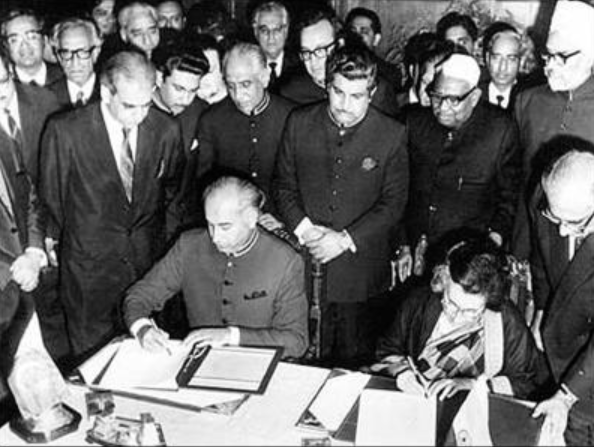
The government of Pakistan took action by suspending the 1972 Simla Agreement after India implemented security measures following a terrorist attack at Pahalgam. After the 1971 Indo-Pakistani war, parties signed the Simla Agreement to create bilateral peace while establishing provisions for peaceful resolutions along with the LoC border permissions. This decision to suspend the Simla Agreement seriously affects the relations between nations, principally through its influence on Kashmir conflict management and LoC stability.
Context:
- The Simla Agreement suspension made by Pakistan emerged during an already tense period between the nations because of the repeal of Article 370 in 2019.
- Mediation through bilateral dialogue and LoC status preservation both stand endangered because the suspension dissolves previously established obligations of the Simla Agreement.
Key Points
What is the Simla Agreement?
-
Date & Signatories:
-
Signed on July 2, 1972, in Shimla.
-
Between PM Indira Gandhi (India) and President Zulfikar Ali Bhutto (Pakistan).
-
-
Objective:
-
Both governments used this agreement to establish peaceful connections between their nations and heal the wounds from the 1971 war that produced Bangladesh.
-
Key Provisions of the Simla Agreement:
-
The agreement stipulated no outside mediation since both parties needed to solve all matters through direct communication only.
-
The Jammu & Kashmir region received its permanent demarcated border status as the Line of Control (LoC) while both sides agreed against changing it unilaterally.
-
Commitment to sovereignty, territorial integrity, and political independence.
Key Outcomes of the Simla Agreement:
-
Establishing the LoC brought an official border status to J&K territory, which limited widespread military confrontations between both nations.
-
India exchanged territorial land totalling 13,000+ km² and maintained key defense locations of Turtuk and Chalunka.
-
Bangladesh Recognition: Paved way for Pakistan’s eventual recognition of Bangladesh.
Impact of Pakistan’s Suspension:
-
The diplomatic shift caused by this development presents the potential for the UN, OIC, and China to become involved in the Kashmir issue.
-
Suspension of talks creates tension that damages trust factors and violates bilateral conversation standards as it raises potential confrontational risks.
Implications for LoC:
-
The Levied Area Will Face Increased Tensions Because the Number of Ceasefire Violations and Cross-Border Shelling Is Expected to Grow.
-
Marginal strategic changes are present, yet intensifying conflicts between nations remain a danger to the stability of the region.
What Lies Ahead:
-
The closure of diplomatic channels could occur together with increased foreign intervention in this situation.
-
Professionals switched by unstable conditions along the Line of Control threaten regional peace throughout South Asia's security framework.
Conclusion:
The Pakistani government suspended the 1972 Simla Agreement as part of its new policy for dealing with its principal international issues with India, specifically concerning Kashmir. The suspension threatens to destabilize the Line of Control and intensify hostility between both nations while also making future peaceful negotiations demanding. The continued suspension between these nations may cause their relationship to worsen, which will create more regional chaos to make peace unattainable.



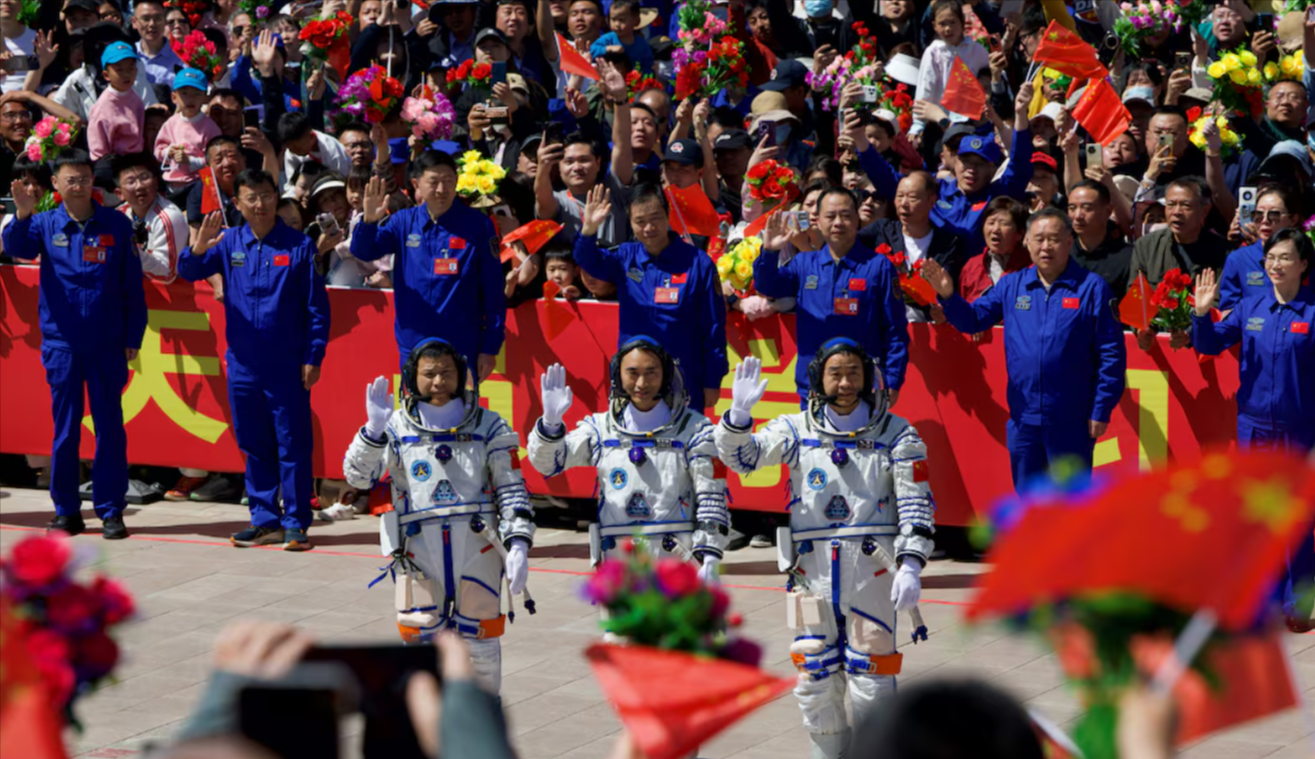 China Launches Shenzhou-20 Mission to Tiangong Space Station on Space Day
China Launches Shenzhou-20 Mission to Tiangong Space Station on Space Day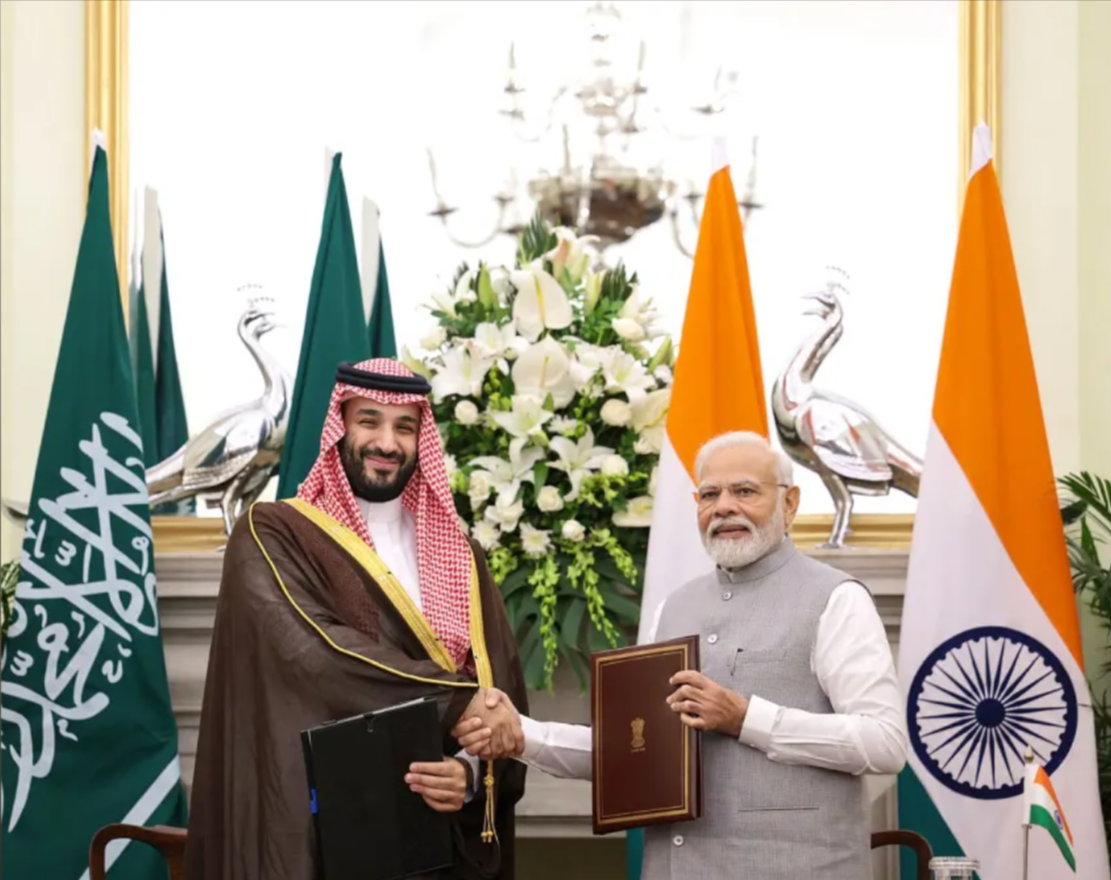 India-Saudi Arabia Strategic Partnership: Strengthening Bilateral Ties through PM Modi's Visit
India-Saudi Arabia Strategic Partnership: Strengthening Bilateral Ties through PM Modi's Visit Pope Francis, a Cheerful Reformer Who Stood for an Open Church, Dies at 88
Pope Francis, a Cheerful Reformer Who Stood for an Open Church, Dies at 88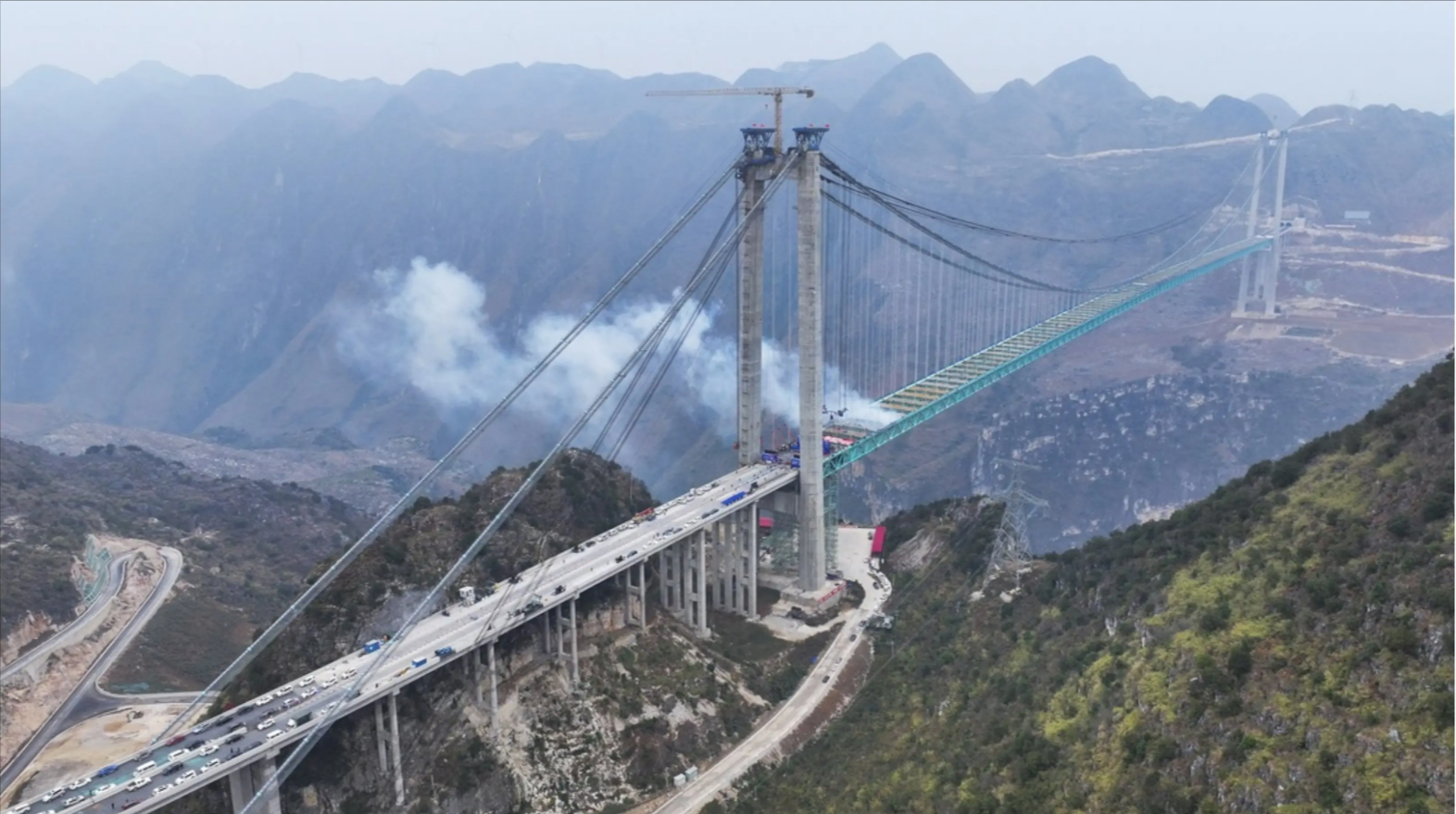 China Set to Unveil World’s Tallest Bridge — Huajiang Grand Canyon Bridge in June
China Set to Unveil World’s Tallest Bridge — Huajiang Grand Canyon Bridge in June World Haemophilia Day 2025: ‘Access for All – Women and Girls Bleed Too’ Awareness Campaigns Across
World Haemophilia Day 2025: ‘Access for All – Women and Girls Bleed Too’ Awareness Campaigns Across Blue Origin's First All-Women Crew Returns After Historic Space Launch
Blue Origin's First All-Women Crew Returns After Historic Space Launch Mauritius Becomes First African Nation to Sign ISA’s Country Partnership Framework 2025
Mauritius Becomes First African Nation to Sign ISA’s Country Partnership Framework 2025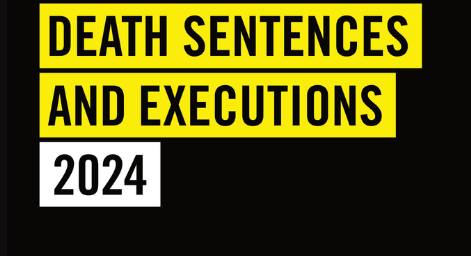 Amnesty International's Death Sentences and Executions 2024
Amnesty International's Death Sentences and Executions 2024 De-Extinction of Dire Wolf: Scientists Revive Ancient Predator Using DNA
De-Extinction of Dire Wolf: Scientists Revive Ancient Predator Using DNA






